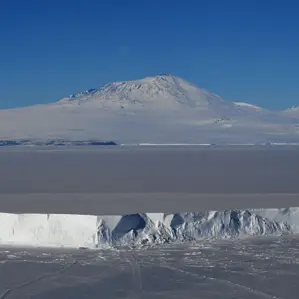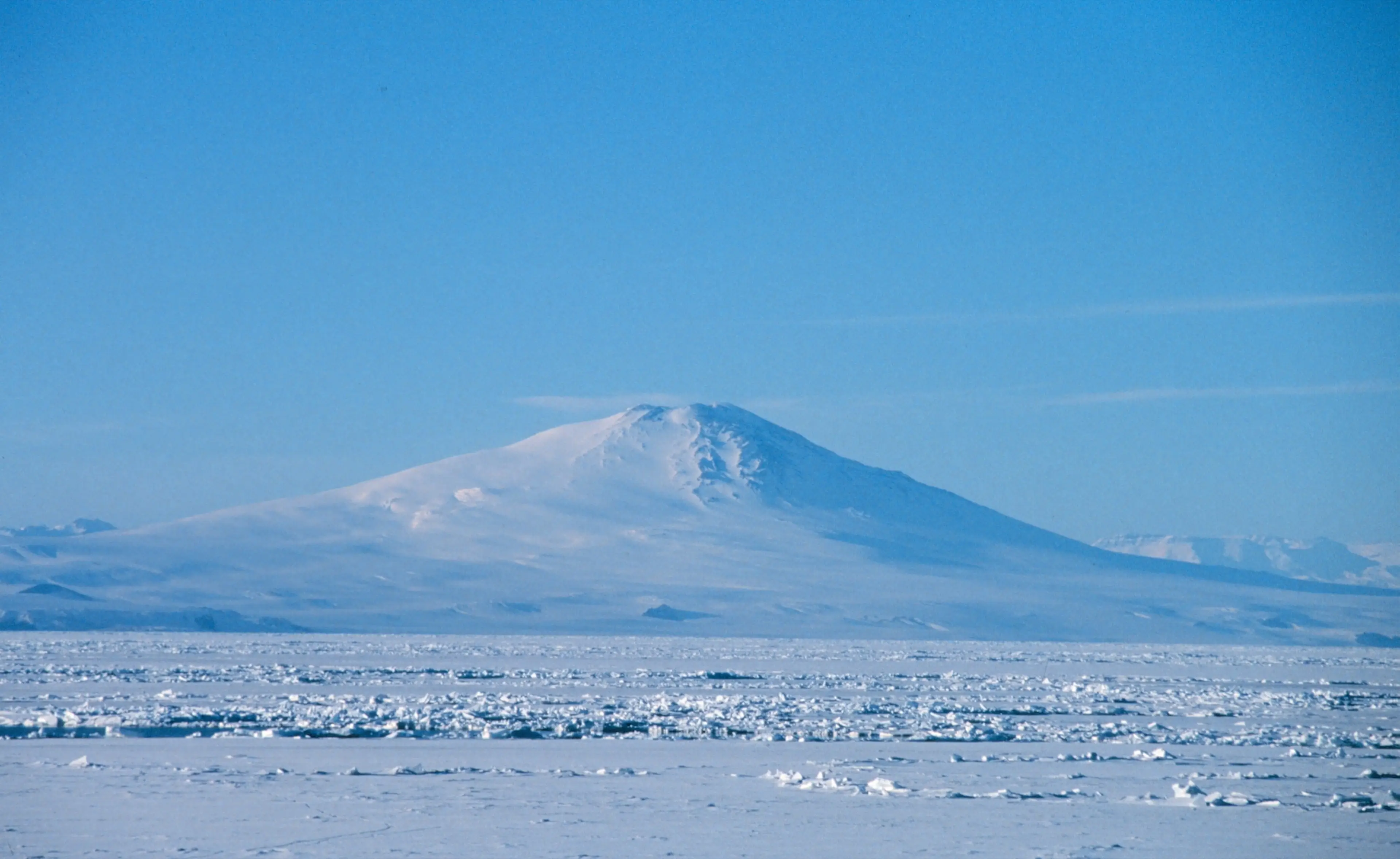
Although it might have a reputation for being freezing cold (rightly so), Antarctica is actually home to the largest single region of volcanic activity on Earth.
This is all contained in a big stretch of its western edge, an area that hosts a whopping 138 volcanos, some dormant and others active.
In fact, only two of those 138 are active at this moment - Mount Erebus and Deception Island. Those are two pretty evocative names for volcanos, if you're asking us. Still, if that number skyrocketed to get way higher we'd be in some quite serious trouble.

Advert
In ancient pre-history, eruptions in the Antarctic region caused havoc, with glaciers melting and holes being punched in the ozone layer by the sheer amount of gas being exhausted from the volcanic reactions.
That's apparently very unlikely to be mirrored any time soon, thankfully, but things could still go less than great for us.
Rather than major atmospheric change, some experts think that the biggest risk if Antarctic volcanos started erupting would be around sea levels.
This is because so many volcanoes are buried under glaciers or other ice sheets, and their eruptions could cause enormous quantities of meltwater to be generated, which would just be the start of the problem.
John Smellie, Professor of Volcanology at the University of Leicester wrote a piece for The Conversation discussing this very threat, and said that "because the West Antarctic Ice Sheet is wet, rather than frozen to its bed - imagine an ice cube on a kitchen worktop - the meltwater would act as a lubricant and could cause the overlying ice to slip and move more rapidly."
That isn't even the end of it, with the real possibility that these new flows of water could bring simple massive ice sheets with them, changing ice flows around multiple oceans and having a huge ecological effect.
On the one hand, changing sea temperatures could wreak havoc on unprepared ecosystems. On the other, rising sea levels could devastate coastal communities. Both outcomes don't sound ideal.
Smellie argued that such an outcome would require a fair few volcanos to erupt in an overlapping time period, which is very unlikely to ever happen based on our current estimates, but the thought is still quite scary.
Even more frightening is the possibility that this could cause a chain reaction, with more subglacial volcanoes being exposed and disturbed into activity by the eruptions of others, and the movement of ice above them.
So, the serene and frosty nature of the Antarctic expanse is actually a little more precarious than you might have ever thought - even if the likelihood of these eruptions happening is very remote.
